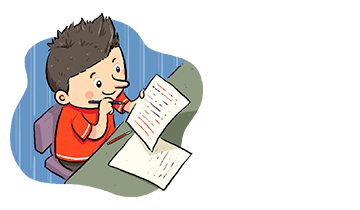


WRITING TIPS
Welcome to the writing tips session!
Remember to read the task in your activity book carefully and make sure you answer the questions proposed and cover the topics asked.
Below you will find some useful information that will help you write an essay.
Essay

What is the objective of an essay?
To discuss an issue and give your opinion about it.

What language should you use?
Essays tend to be more formal in language, so you should be familiar with a range of expressions to compare, contrast, add information and draw conclusions.
A successful essay should…
- be well organized, with an introduction, development and a conclusion;
- compare and contrast different points of view;
- discuss advantages and disadvantages whenever possible;
- present arguments for and against each point of view presented;
- conclude by clearly stating where the author stands on the issue.

ORGANIZE YOUR TEXT!
A well-organized text is much more pleasing to read and easy to understand. You should structure it as follows.

First paragraph → An introduction that states the topic, explains the issue briefly and state why there are different opinions about it.

Second paragraph → First argument: explain reasons why people may think this, include relevant information and illustrate with examples, evaluate advantages and disadvantages of the idea (if applicable), and make sure the paragraph explains this idea clearly.

Body → Third paragraph - second argument: same as before. Fourth paragraph - third argument: same as before.

Last paragraph → Conclusion: wrap up the discussion and invite the reader to reflect. You may add your opinion.
LEARN THE RIGHT LANGUAGE

USE CONNECTORS
Connectors help organize your ideas and make them clear. They also make it easier for the readers to follow when used correctly. Be careful to use them in the right place.
To contrast ideas (similar to but)
although, whereas, however, on the other hand, in spite of, despite
To add information (similar to and)
furthermore, in addition, moreover, besides, also
To draw conclusions (similar to so)
as a result, therefore, thus, that is why, consequently
To talk about the cause of something (similar to because)
as, due to, since, because of
To organize items or ideas in a sequence
first of all, then, after that, in the end, finally
To conclude
to sum up, in short, all in all
STATE IDEAS IN AN IMPARTIAL WAY
The presentation of the arguments should be impersonal to guide readers to draw their own conclusions. Here are some expressions that may be useful.
Some/Most/These people believe that…
It is a common misconception to…
Something/somebody is believed to be…
It is known that…
It is/seems clear that…